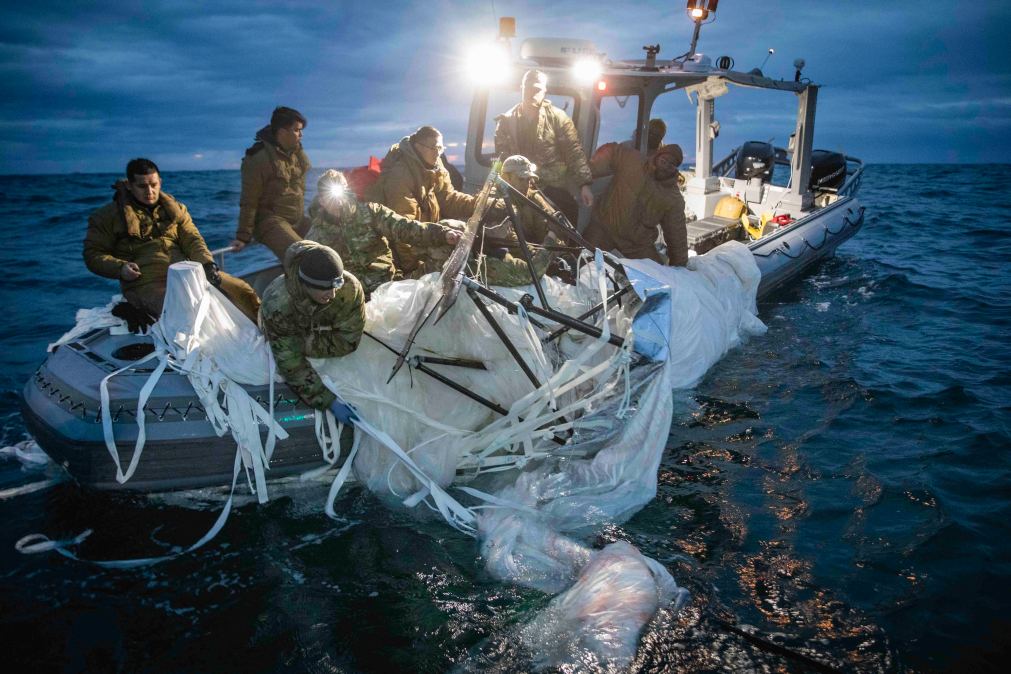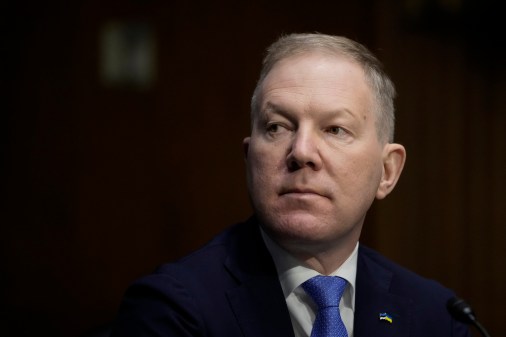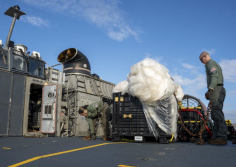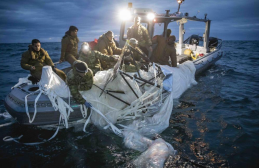It’s not what the spy balloon gathered — it’s what it exposed

While the United States seems intent on referring to China as our “pacing challenge” and a “strategic competitor,” the People’s Republic of China President Xi Jinping is very comfortable referring to the United States as his country’s most dangerous adversary. As the most recent violation of our national sovereignty by their spy balloon demonstrates, China is prepared to back up that view with brazen action. Make no mistake, the United States should not seek confrontation with China. On the contrary, we should be taking actions that demonstrate our resolve across all levers of national power in order to avoid conflict, while posturing ourselves to defeat any acts of aggression. Unfortunately, our current rhetoric and approach to China seem to ignore the overtly aggressive positions they are taking in regard to the United States and will only lead to more confrontation.
In 1983, during the height of the Cold War, President Ronald Reagan labeled the Soviet Union as the “Evil Empire” and made the case that the struggle between our two nations was one of “good vs. evil” because it was a choice between totalitarianism and freedom. His political opponents immediately condemned Reagan’s rhetoric, suggesting it was reckless and could provoke the Soviet Union to war. But the “great communicator” — as Reagan was known — understood something those opponents did not: When communicating a position or vision, whether about domestic politics or international affairs, it is far better to paint a picture that uses “no pale pastels, but bold colors which make it unmistakably clear where we stand on all of the issues troubling the people.”
When China refers to the United States as its “adversary” and we choose to use terms like “pacing challenge,” we should not be surprised that the actions that follow are disparate. As history has proven, to the leaders of the CCP (Communist Chinese Party) it would be unthinkable to allow a U.S. spy balloon, or any other aerospace vehicle, to transverse the majority of their nation if they had the means to stop it. Furthermore, the talk of it being a violation of their national sovereignty and a potential act of war would certainly have followed.
However, during the most recent spy balloon incident, not only did we not shoot the balloon down at our first opportunity, we allowed it to continue its mission. The Department of Defense has stated that we took steps to protect against the collection of sensitive information and that by allowing it to continue its journey across America we were able to gather important information about how it operates. Additionally, while the DOD did shoot down the subsequent three “objects” when they became a safety concern in regard to civilian aviation, we still don’t know the origin or purpose of those devices. While I do not doubt the authenticity of the DOD’s claims, it still raises several key questions.
First, as the DOD has admitted, we have been observing these balloons for several years in other locations around the globe. If we had gaps in our understanding of how these aerospace vehicles were operating and the missions they were conducting, wouldn’t it have been better to gather that data in a location outside our sovereign airspace? Second, if we still wanted/needed to gather information on how the platform operates, how confident are we that we prevented it from collecting any sensitive information? Finally, how confident are we that these smaller objects are not also part of the Chinese near-space surveillance enterprise/network? If we viewed China as the adversary they openly claim to be, these questions would have been addressed long before the events of the last few weeks.
Regardless, the issues above still miss the bigger point. The optics and accompanying message sent to the CCP, our allies and other potential foes by allowing a week-long journey over our homeland by what we have admitted is a foreign nation’s spycraft is far more damaging than any of the intelligence it may have gathered. When it comes to issues of national security and the sovereignty of our nation, we must paint a picture of clarity and resolve using bright “bold colors.” We must also be ready to back up those words with action — not to cause conflict but to prevent it. Make no mistake, authoritarian regimes — like those of the Soviet Union and today’s CCP — interpret weak words as weak resolve. Reagan’s tough and accurate rhetoric in regard to the Soviet Union did not escalate the Cold War or turn it into a hot one. On the contrary, his clear and concise description of the choices between our two forms of government gave the citizens of the United States a clear understanding of our foe and the rest of the world a clear choice — choose freedom over tyranny and good over evil. And most importantly, back up those words with supportive actions.
The United States, and the world, benefits when our country takes clear positions of strength and resolve. When we don’t take those positions in regard to our own sovereignty, it’s only natural that our friends and allies will have doubts about our commitment to theirs. The question now is how do we reassure our citizens, the CCP, and others around the globe that the United States is serious about national security and our future approach to China? I suggest a clear and completely unambiguous statement to the Chinese government that any future events like this will not only result in the immediate destruction of the aerospace vehicle but in ramifications across all our levers of national power. Additionally, show the recovered wreckage, and its obvious intelligence-gathering sensors, to the world to further demonstrate the CCP’s flagrant disregard for international law and aversion to the truth. Most importantly, call the CCP what they are: an authoritative regime and an adversary to the United States and all freedom-loving countries.
In 1959 when told of the launch of Sputnik by the Soviet Union, then-Senator Lyndon Johnson quipped, “I refuse to sleep at night under the light of a communist moon” (Americans, unfamiliar with what a satellite was, were told to think of it as another moon orbiting the earth). I am confident that most Americans do not want to sleep at night under the watchful eye or listening ear of a communist spy balloon regardless of its capabilities. I am also confident the world is a safer, more secure, free and prosperous place when the United States takes positions of strength and clarity and backs those positions up with decisive action. We must take every step necessary to make sure events like this do not happen again.
Lt. Gen. Charlie “Tuna” Moore (retired) is a Distinguished Visiting Professor at Vanderbilt University. He is a former US Air Force fighter pilot and Deputy Commander of U.S. Cyber Command.






